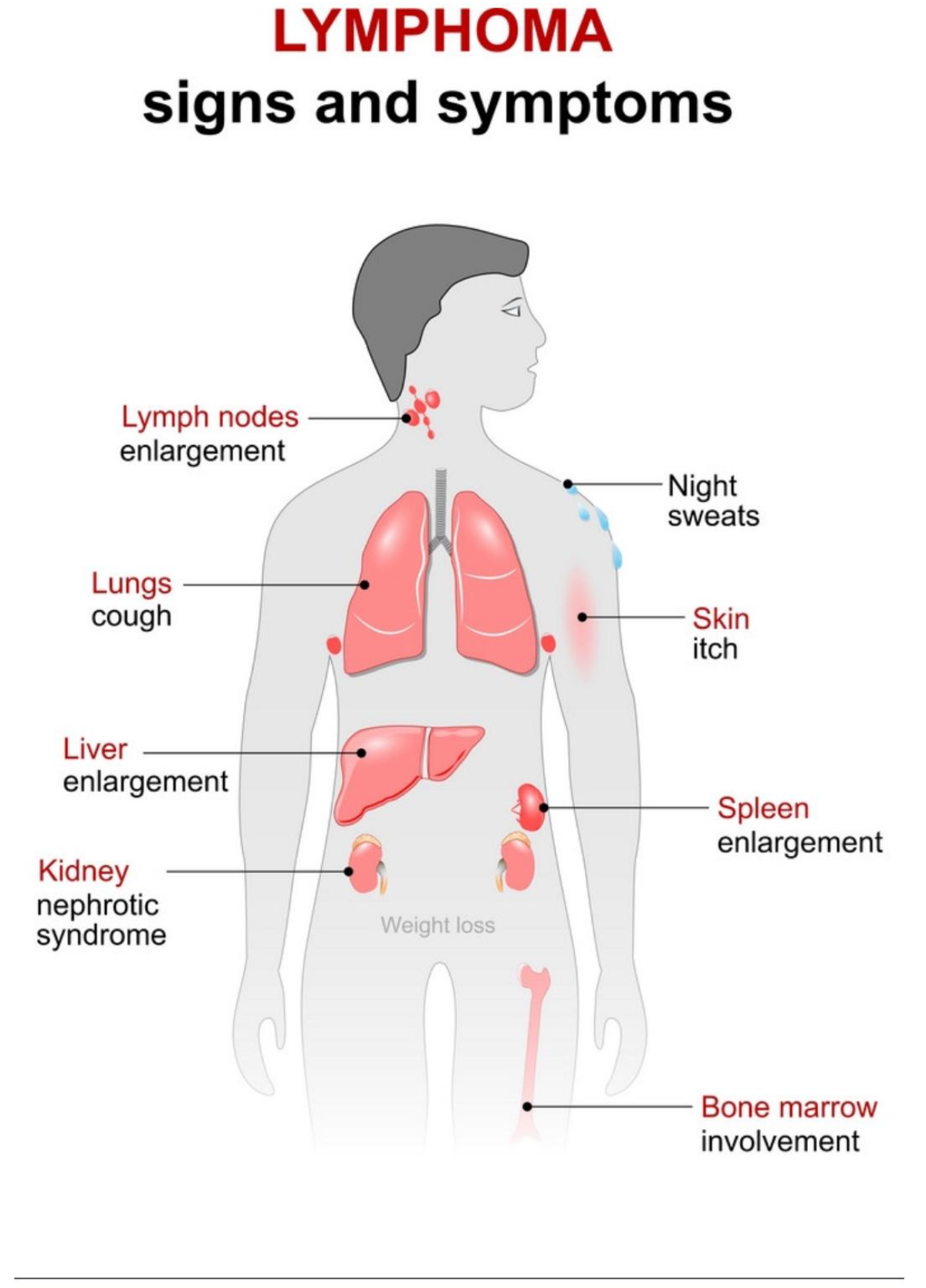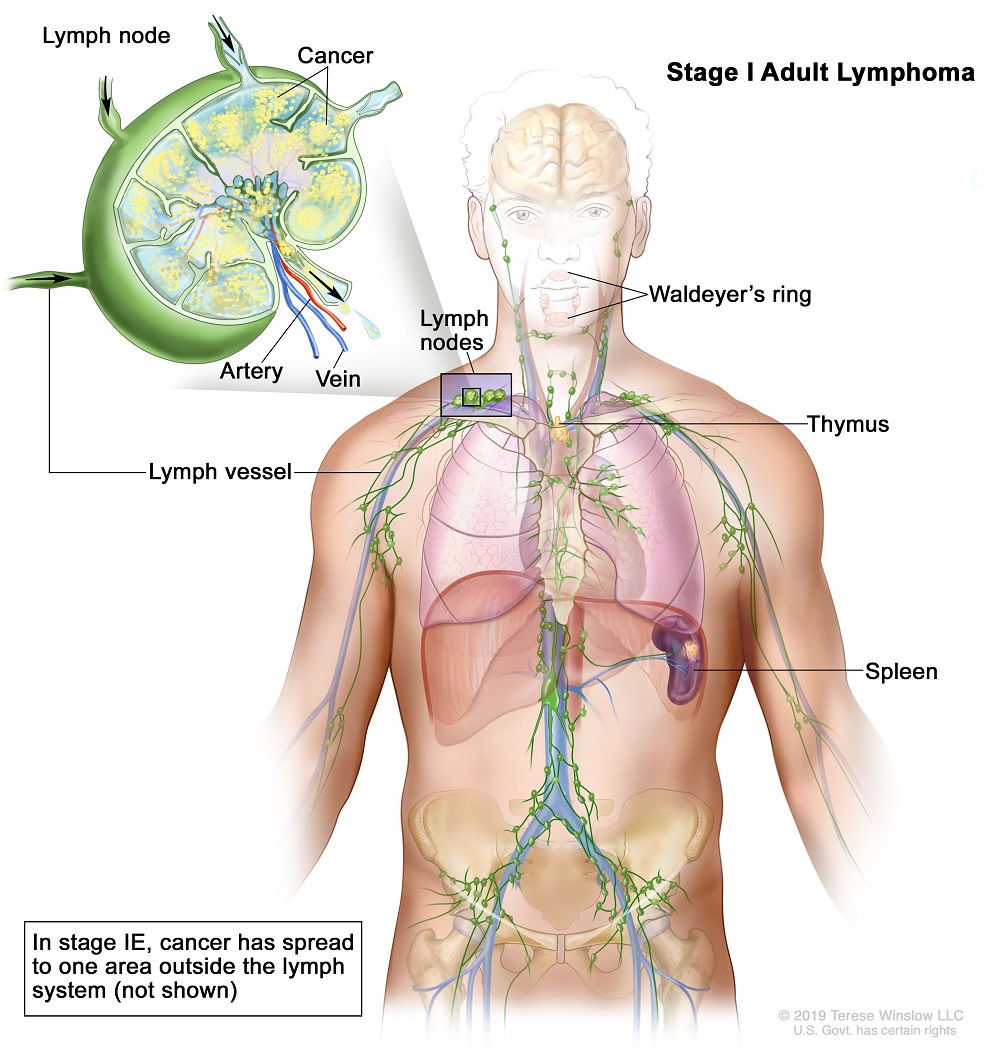Lymphoma is a cancer that affects the lymphatic system. The lymphatic system forms part of the immune system that helps protect us from infections and diseases. Lymphoma is not infectious and cannot be passed on to other people.
Types of Lymphoma
There are many types of lymphoma but there are two main sub-types:
Hodgkin lymphoma
Formerly known as Hodgkin’s disease, it is one of the most common types of lymphoma. It usually starts in the lymph nodes in the neck but can affect other body parts. It is more common in people between 20-40 years and people aged 55 and over. This type can also be further classified into classical and Nodular lymphocyte predominant Hodgkin lymphoma
Non -Hodgkin lymphoma
This is more common than the other type and usually starts from the lymphocytes-a white blood cell. Some grow slowly and may not need treatment for a long time while others may grow rapidly. There are different subtypes of non-Hodgkin’s lymphoma, of which follicular and Diffuse large B-cell lymphoma are types.

Causes of Lymphoma
There is no exact cause of lymphoma but it starts when the lymphocyte mutates rapidly. The following are factors that can increase the risk of lymphoma
Gender
This type of cancer seems to be more common in men than women.
Age
Hodgkin lymphoma is more common in people who are 20 to 34 years old or over 70 years old While Non-Hodgkin lymphoma is common in those in their 50s or older.
Exposure to harmful substances
If you were exposed to benzene or chemicals that kill bugs and weeds
Exposure to radiation
if you were previously treated for cancer with radiation
A weakened immune system
The risk of developing lymphoma may be higher if the body’s immune system is weak. An immune system may be weak as a result of HIV/AIDS, an organ transplant, or as a result of taking immunosuppressants.
Auto-immune disease
When the immune system attacks healthy body tissue by mistake, this can cause an Auto-immune disease. e.g. rheumatoid arthritis, Sjögren’s syndrome, lupus, or celiac disease
Certain infections
Having infections like the Epstein-Barr virus and Helicobacter pylori infection can significantly increase the risk of getting lymphoma.

